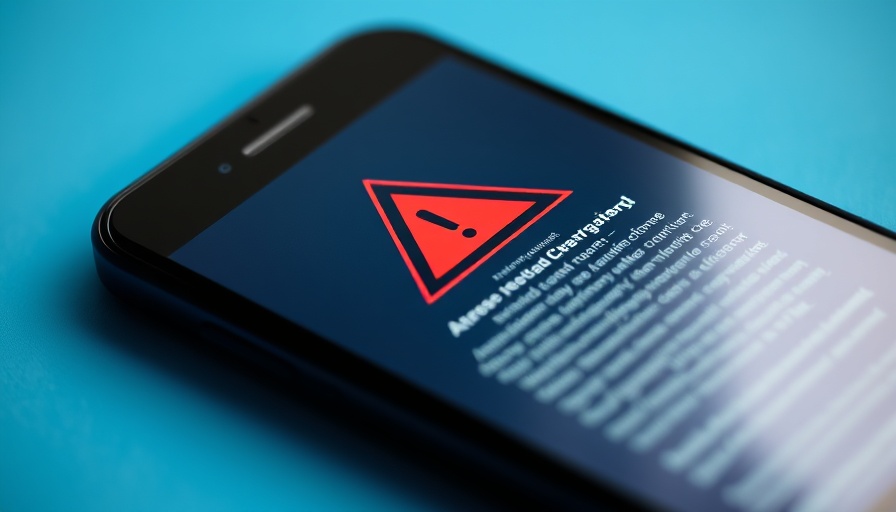
Understanding the DMV Scam Text: What You Need to Know
In a world increasingly populated by scams, staying alert is your first line of defense. The newest wave of deceptive tactics involves threatening text messages from supposed DMV officials. These messages often claim alarming issues such as blemishes on your driving record or threats of license suspension. However, these claims are usually unfounded and designed to manipulate your anxiety.
How To Spot the Red Flags
Identifying these scam texts can be straightforward with a bit of awareness. According to the First National Bank, there are specific characteristics that commonly appear in these messages. Firstly, they often fraudulently present themselves as communications from your state’s Department of Motor Vehicles. Secondly, they employ aggressive language, aiming to incite anxiety regarding potential sanctions like license suspension or vehicle registration cancellations.
Another critical aspect is the presence of links. These fraudulent messages often include hyperlinks that lead to fake websites. Unwittingly clicking on these links could open the door to identity theft, as they encourage you to input sensitive information like credit card numbers.
No Real DMV Notices via Text
Rest easy, California residents! It’s important to remember that no state DMV will initiate contact through text messages to inform you of these matters. As emphasized by experts at First National Bank, all enforcement notices regarding unpaid tickets or fines will arrive via paper communication. So, if you receive a text demanding payment, it’s undoubtedly a scam.
What If You've Fallen Victim?
Recognizing that you've been scammed is disheartening, but swift action can mitigate potential damage. If you believe you’ve provided sensitive information, contact your bank immediately. It’s critical to alert them to the situation, as they can take proactive steps to protect your accounts. Furthermore, monitoring your financial transactions closely can help you spot any unauthorized actions.
Additionally, freezing your credit gives you another layer of security. This procedure prevents new accounts from being opened in your name without your express permission. Listing the scam with your local law enforcement and filing a report at reportfraud.ftc.gov also aids in combating these fraudulent activities.
Community Awareness: The Best Defense
With an increase in scams, community awareness plays a pivotal role. Sharing information and experiences with friends, relatives, and neighbors, especially within urban and suburban areas of California, can build a robust support network capable of combating fraud.
Holding educational forums about common scams can empower diverse community members, which is crucial in a state as extensive and varied in its population as California.
Stay Informed to Stay Safe
Keeping abreast of the latest scams like the DMV text warning can make a significant difference in your personal safety. Familiarizing yourself and others with telltale signs of a scam can prevent not just one, but potentially multiple individuals from suffering loss.
These scams come and go, but the best weapon against them lies in awareness and education. By pooling information and resources, residents can create a well-informed community equipped to handle these threats.
Act Now for Peace of Mind
Understanding these threats equips you to safeguard your information proactively. Don’t hesitate to speak out if you receive suspicious communications! Equipping your friends and family with understanding about these scams can help protect everyone.
For everyone in California, keeping your personal information secure should always be a priority. Join local efforts in fraud education and take steps towards community enhancement. Protect yourself and those around you: let knowledge be your strongest ally against deception.
 Add Row
Add Row  Add
Add 




Write A Comment